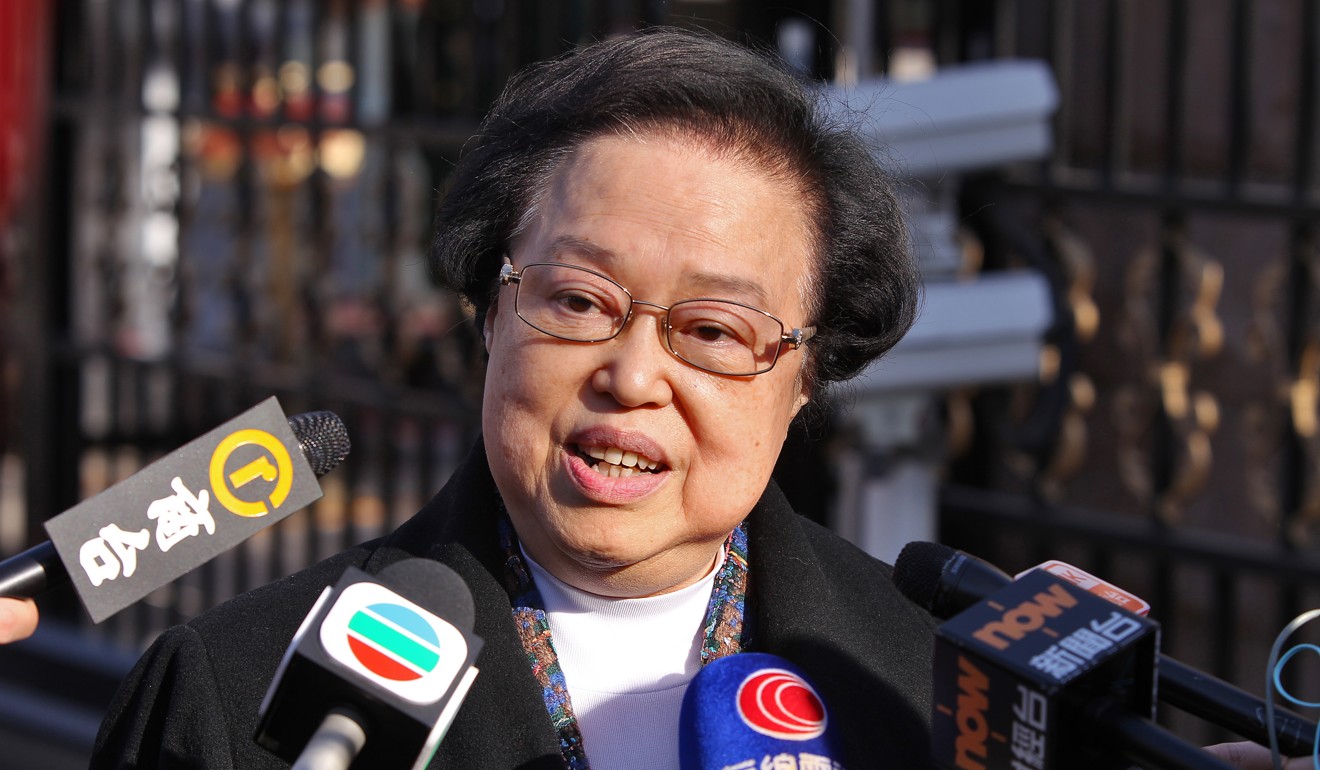
Joint checkpoint for rail link ‘in line with Basic Law’, Beijing’s point man on Hong Kong tells China’s top legislative body
But questions persist in Hong Kong on the legality of the arrangement, which would give Beijing authority over an area of the West Kowloon terminus
Beijing’s point man on Hong Kong affairs told China’s top legislative body on Friday that the joint checkpoint for the cross-border rail link was “in line” with the country’s constitution and the city’s mini-constitution, amid an ongoing debate in Hong Kong on the legality of the arrangement.
Xi’s melding of Beijing’s authority and Hong Kong’s high degree of autonomy works well, top official says
On Friday, state broadcaster CCTV quoted Zhang as saying: “[The arrangement] will not change the administrative boundary of the Hong Kong Special Administrative Region, and will not weaken the rights and freedom that Hong Kong people enjoy under the law.
“It is in line with the Basic Law.”
Three unanswered questions over the signing of Hong Kong’s controversial joint rail checkpoint deal
But questions on which article in the city’s mini-constitution allows for this arrangement are likely to persist.
The city’s Secretary for Justice, Rimsky Yuen Kwok-keung, had previously offered Article 20, which allows the NPC Standing Committee to grant the Hong Kong government powers not yet enshrined in its mini-constitution.
But Yuen’s suggestion was disputed by pan-democrats and a Beijing academic.
Former Legislative Council president Jasper Tsang Yok-sing, a pro-Beijing figure, on Thursday said the government should just “admit [the co-location arrangement] is an exceptional and special arrangement”, adding that the arrangement did not contravene the “one country, two systems” model under which Hong Kong is currently given a high degree of autonomy from Beijing.
Hours after Zhang’s briefing on Friday, Elsie Leung Oi-sie, vice-chairwoman of the Basic Law Committee under the NPC Standing Committee, told reporters of her personal view that the legality of the arrangement rested in multiple articles – and not just one – of the Basic Law.
Leung, who was formerly Hong Kong’s justice minister, was among several political heavyweights from Hong Kong who observed the Standing Committee meeting. Others included Maria Tam Wai-chu and Stanley Ng Chau-pei, who are among the city’s 36 representatives to the NPC.
Leung said that when the Basic Law was drafted over two decades ago, it could not have envisaged every scenario that might arise. She cited the Greater Bay Area initiative, that aims to integrate the economies of Hong Kong and nine other cities in Guangdong province through close cooperation, as an example of a new scenario.
In the case of the co-location arrangement, Articles 2, 7, 22, 119 and 154 would provide sufficient legal grounds, she said.
Cross-border railway will help Hong Kong in long-term, transport chief says, after drop in projected returns
“It is not necessary to find a specific article that could totally suit the (co-location) situation,” she added.
Article 7 states that while Hong Kong’s lands belong to the state, the city is responsible for managing, using and developing them. Article 119 says Hong Kong shall formulate policies to promote various trades such as transport and tourism.
But critics have often pointed to Article 18, which states that national laws shall not be applied to Hong Kong except for those listed in Annex III of the Basic Law.
Leung’s response was that the interpretation of Article 18 was “irrelevant” as national laws would only apply to a specific group of people in a specific place – in this case, users of the high-speed rail in the West Kowloon terminus.
Tam, a barrister, said the standing committee would vote on the co-location proposal next Wednesday and its decision would be binding, with Hong Kong’s courts having no power to challenge it.
“Hong Kong courts have already agreed and accepted that they … cannot challenge decisions made by the committee,”
“But of course, no one can stop anyone from taking the matter to court,” she said.
Democratic Party lawmaker Lam Cheuk-ting on Friday disagreed with Leung and Tam’s arguments.
“Including Hong Kong in the Greater Bay Area project is not against the principle of ‘one country, two systems’, but allowing mainland officers to operate in the West Kowloon terminus contravenes Basic Law Articles 18 and 22,” he said.
Lam also said he could not understand why Tam believed that Hong Kong’s court would not challenge the standing committee’s decision.
“The Basic Law stipulated that the NPC standing committee can interpret the mini-constitution, but now it’s even worse than an interpretation … So is Ms Tam the city’s chief justice now?” he said.

On Friday, after Zhang’s briefing to the standing committee, its members were divided into six groups to discuss the arrangement. Yuen, transport and housing minister Frank Chan Fan, as well as security minister John Lee Ka-chiu, also made a rare appearance to attend the discussion.
Yuen said afterwards that Hongkongers’ concerns were represented in the discussion, with the standing committee members supportive of the co-location arrangement. Its endorsement would be the second of a three-step process to set up the joint checkpoint.


